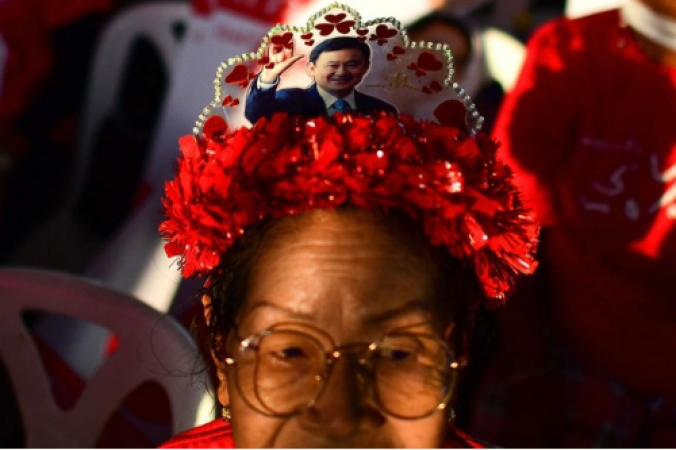
Bangkok: Divisive former Thai premier Thaksin Shinawatra's imminent return to the nation from exile holds the potential to intensify political volatility, coinciding with a significant parliamentary vote for a new prime minister following months of deadlock.
Thaksin, a figure both influential and controversial, has held a polarizing role in recent Thai history. While despised by pro-military and royalist elites, he garners admiration from rural communities that experienced transformative policies during his tenure in the early 2000s.
His return, ending a 15-year self-imposed exile, arrives at a critical juncture in Thailand's political landscape. The country has grappled with a leadership vacuum for three months following surprising electoral success by the youth-oriented Move Forward Party (MFP). However, conservative forces opposed to the MFP's vision for change have hindered their advancement.
Also Read: Dhawan Picks Kohli, Rohit, and Others for His Dream ODI XI in World Cup
A coalition shift ensued as the Pheu Thai party, led by Thaksin's daughter Paetongtarn Shinawatra, aligned with army-backed candidates, contrary to earlier campaign pledges. This recalibration was punctuated by the announcement that Thaksin would return on Tuesday, just hours prior to the parliamentary vote for a new prime minister.
Though Thaksin, currently 74, confirmed his daughter's declaration, the reason for his return remains multifaceted. His exile commenced in 2008, propelled by longstanding criminal charges he perceives as politically driven, with potential jail time still looming.
Political analyst Jade Donavanik noted the need for Thaksin to garner support from his supporters to ensure his safety within the government. While Thaksin's controversial reputation persists, the success of the MFP led by charismatic Pita Limjaroenrat might compel some to reconsider their stance.
Also Read: Fierce Canadian Wildfires Show Glimmers of Progress Amidst Ongoing Battle
In the broader context, Pheu Thai's coalition with the army-backed United Thai Nation Party has left both supporters and progressives disillusioned. Thaksin's past as a telecom magnate turned politician is marked by populist influence and a significant stint as prime minister from 2001 to 2006.
Thaksin's popularity, especially in rural regions where the Pheu Thai party remains linked to his family, remains evident. However, the party's diminished performance in the recent elections marks a shift in sentiment.
The ongoing power struggle is characterized as a clash between the old guard and the emergent forces of change. As activist Thida Thavornseth observed, the Thai people's evolving inclinations towards democracy underscore a transformative shift.
Thaksin's potential role in the ongoing political landscape remains uncertain. While he wields control over the Pheu Thai party, other influential forces could exert control over him.
The decision to collaborate with previously unaligned conservative factions has lent Thaksin an unexpected credibility among establishment circles. This union has the potential to reconfigure Thai politics.
Also Read: Kim inspects a cruise missile test as South Korea-US military exercises get underway
Yet, the focus on Thaksin's return risks overshadowing deeper issues, including debates surrounding Thailand's monarchy. Amidst calls for changes to lese-majeste laws, the influence of the royal establishment on the Thaksin narrative persists.
As Thailand navigates these intricate dynamics, the return of Thaksin Shinawatra becomes more than a personal homecoming – it is a catalyst for potential shifts in the balance of political power and a reminder of the nation's complex journey towards democracy.